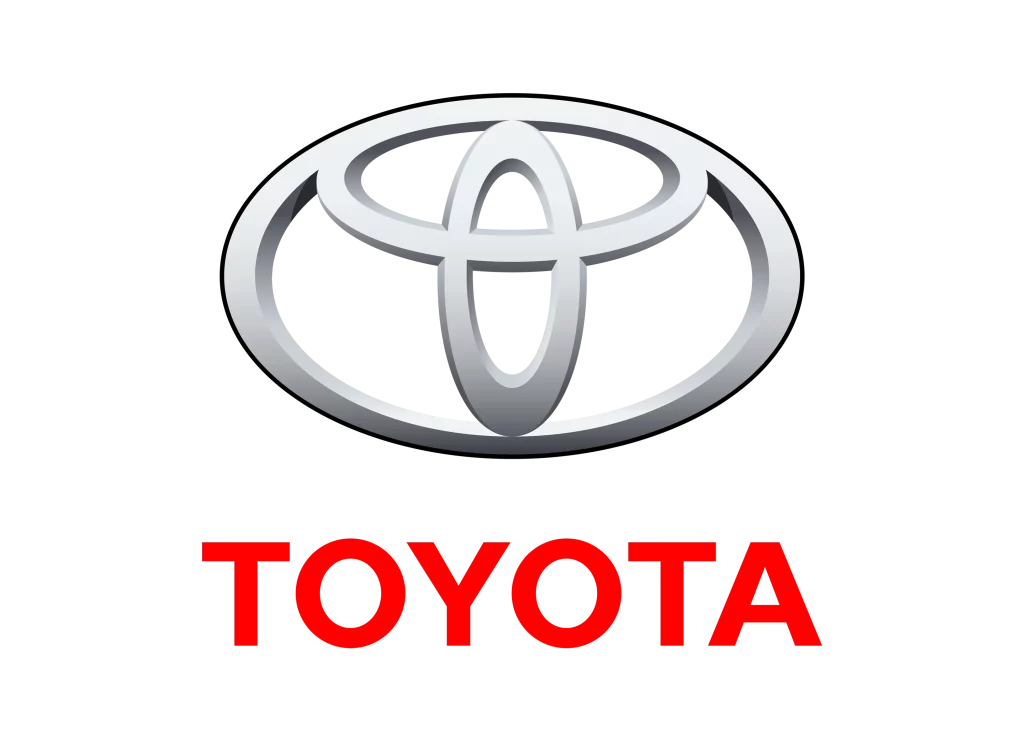Car logos - Recently watched
Motorcycle brands - Recently watched
Truck brands - Recently watched
Tractor brands - Recently watched
Tyre brands - Recently watched
Blog Posts - Recently watched
History of car branding
Cars have become an integral part of modern society, with millions of people around the world relying on them for transportation. However, behind each car is a unique and recognizable brand, represented by a distinctive logo. Have you ever wondered how these logos came into existence? In this blog post, we will explore the history of car branding and the creation of car logos.
The history of car branding can be traced back to the late 1800s, when the first automobiles were invented. However, at that time, cars were considered a luxury item that only the rich could afford. As a result, there was little need for branding or marketing to the masses.
One of the earliest car manufacturers was Karl Benz, who founded Benz & Cie in Germany in 1883. The company produced the Benz Patent-Motorwagen, which is widely considered to be the first automobile. However, the company did not create a logo until several years later.

In 1902, the Italian car manufacturer Fiat became one of the first companies to create a logo. The company’s logo featured a circular emblem with the letters “F” and “I” inside, representing the company’s name. This logo was used for many years and is still in use today.
As cars became more popular and affordable, competition between manufacturers increased. In order to stand out from the crowd, car companies began to create logos that would help identify their brand.
One of the earliest car logos was created by Peugeot in 1905. The logo featured a lion, which was a reference to the company’s home city of Lyon. The lion was depicted standing on its hind legs, symbolizing the strength and power of the Peugeot brand.

Another early example of a car logo was created by Cadillac in 1906. The logo featured a coat of arms with the Cadillac name at the top and a wreath surrounding it. The coat of arms was meant to symbolize the company’s status as a luxury brand.
Over the next few decades, car logos became more complex and sophisticated. Many companies began to incorporate animals or other symbols into their logos, while others used stylized versions of their company names.
One of the most iconic car logos of all time was created by Mercedes-Benz in 1926. The logo featured a three-pointed star, which represented the company’s ambition to dominate the land, sea, and air. The star was surrounded by a circle, which represented the company’s commitment to perfection and excellence.
In the years since their creation, car logos have continued to evolve and change. Some companies have updated their logos to keep up with changing trends and consumer preferences, while others have stuck with their original designs.
One example of a company that has updated its logo over time is Volkswagen. The company’s original logo, which was created in 1938, featured a stylized “V” and “W” that were separated by a circle. However, in 2019, the company unveiled a new logo that features a simpler design with a flat two-dimensional look.
Another example is BMW, which has used a variety of logos over the years. The company’s original logo, which was created in 1917, featured a circular emblem with the letters “BMW” inside. In 1923, the logo was updated to include the company’s now-iconic blue and white propeller design, which was a nod to the company’s origins as an aircraft engine manufacturer.
In conclusion Car logos have become an important part of our cultural landscape, representing not just the companies that produce cars but also the values and ideals that they stand for. Over the years, car logos have evolved and changed, reflecting the changing tastes and preferences of consumers and the shifting trends in design and branding. Today, car logos are instantly recognizable symbols that can evoke emotions and feelings in consumers.
In addition to their visual appeal, car logos also serve practical purposes. They can help consumers identify different car brands and models, which is especially important when shopping for a new car. They can also convey important information about a car’s features, performance, and quality.
Overall, the history of car branding and the creation of car logos is a fascinating topic that reflects the evolution of both the automobile industry and the broader field of marketing and branding. From simple emblems to complex designs, car logos have played an important role in shaping our cultural and visual landscape. And as car manufacturers continue to innovate and evolve, we can expect to see new and exciting logos emerge in the years to come.
8 Meanings and Stories behind Car Logos from Famous Brands in the World
Talking about automotive brands, you must know well that each of them must have a logo or emblem. Sure, those car logos are not only functioned as identities and signs to let people know from what companies they are. The creative team of the company may have brainstormed themselves to make the car logo. Therefore, not only is it used as the identity, there are philosophies and deep meanings behind them.
Interestingly, many of those car companies prove to be successful. Once their logos are displayed in public places, people just know what they are. You can take a look at your own cars or others’ when on the road. Only by seeing the logo slightly, you just know what car it is. But do you know what the meanings behind each of the car logos? Well, here are the explanations.
Audi, the Four Rings
Audi is an automotive brand from Germany that was established in 1899 by August Hoch. As one of the most famous brands in the world, sure, the Four Ring logo by Audi is recognized widely by people. Behind the logo, there is a long story that defines the company. It was started by the founder who must leave his first company because of a particular reason. Then, he started his second company. Well, the second company was named Audi.

In 1932, Hoch’s second company was merged with his first company along with other companies. The merger had a purpose to produce popular cars which would be demanded widely by people all around the world. Being established as a result of the unity of 4 companies, the team of Audi decided to design a logo with 4 rings attached to each other. It is the description of the merging process. Until now, the logo has never changed and is getting more iconic.
Toyota, Ellipses in an Ellipse
From Germany, we moved to Japan. One of the leading automotive brands from the country, Toyota, also has a simple but memorable logo. Even the car emblem from the company is also very meaningful. Being used from 1990, Toyota’s logo, 2 crossing ellipses in a bigger ellipse, means the unity and connection between the company and customers. Those ellipses are formed in such a way also to describe 4 letters in Toyota; T, O, Y, A. Well, it is simple but really creative.

Not only the logo is unforgettable by car customers in the world, but it also delivers the visions and missions of the company. Mainly, it is about how it can always be connected to the customers. The company commits to always satisfy them through innovations and leading products.
BMW, a Circle Divided into Four
The next brand’s logo to talk about is from BMW. BMW’s logo is a circle that is divided into 4 equally. Two of them are blue and two others are white. It is commonly surrounded by a bigger circle in black with the BMW letters on the upper part. The car symbol has been used since the first time the company was established. Uniquely, the team decided to choose it because it looks like a plane’s propeller in the past. What is the relationship between a car and the plane’s propeller?

It is based on the company’s history anyway. Before converting into a car company, BMW was a producer of plane engines from Germany in World War I. After the war stopped, the demands for the products were decreasing. Sure, it means that the income also declined and the team looked for other ways to maintain the company. BMW then decided to produce cars. Although there are ups and downs in the beginning, the company proves that the decision is not bad at all. Yes, BMW is one of the car company brands in the world until now.
Mercedes Benz, the Three-Pointed Stars
Mercedes Benz is one of the big companies in Germany. It is known as a producer of luxurious cars that are sold worldwide. Some products from the brand are also recognized to be high-end. It is reasonable if you may think that the owners of the car from this brand must be rich. But aside from being known as a luxury symbol, you must know well the logo of Mercedes Benz, it is the three-pointed star surrounded by a circle. Generally, the meaning behind the symbol is the economic establishment.

The logo selection process was initiated after the team saw a postcard from Gottlieb Daimler to his wife. Daimler is one of the car inventors and an engineer from Germany who is really famous until now. On the postcard, Daimler drew a star with 3 points as a clue to find his house. Uniquely, he also stated that the star meant the light to brighten up his factory. From the story, Mercedes Benz chose the symbol as its car logo and it is still maintained until now.
Ferrari, the Jumping Horse
The lovers of sports cars must know this brand. Even the logo must be really familiar also. Yes, Ferrari is one of the top automotive brands in the world and it chose a jumping horse as the symbol. Many people may think that the horse may represent the agility and sportiness of the products it releases. However, Enzo Ferrari chose the symbol because it is believed to have a magic power inside.

The story begins when one of the Italian heroines, Countess Paolina suggested Enzo use the jumping horse as the logo of his first car. Paolina said that the logo can give a fortune to his company. The belief was getting stronger when she also attached the logo to her fighter. Because Enzo really wanted his business to run smoothly as well as the products being sold well, he decided to follow Paolina’s request. Whether the jumping horse is really magical or not, you can see that Ferrari is one of the most successful brands in the world. The cars are commonly even owned by the rich.
Hyundai, the Stylized H
Hyundai is an automotive brand from South Korea that is getting more and more popular nowadays. It can compete well with other big brands in the world. So, it is just reasonable if the car symbols can just be simply found around. Hyundai’s symbol looks like the H letter that is stylized. While you may think that it is only the representation of the car’s name, the symbol has a deeper meaning. If you take a look at it more closely, the symbol shows two shake hands, meaning the trust between the company and its customers.

The colors of blue and silver also have their own meanings. Blue is seen as a symbol of excellence, reliability, and supremacy of the brand. On the other hand, silver represents creativity, sophistication, modernity, and perfection for every product produced by Hyundai. It looks like the team is successful enough since Hyundai’s logo is well-known, not all by the customers but also people who see it on the road.
Mitsubishi, the Three Diamonds
Mitsubishi was established in 1870. For many people, the company is only the producer of automotive products including cars. However, the Mitsubishi Group in Japan actually also produces other products; textiles, glasses, and even banking services. The company’s logo has never changed in 1914. It is the three diamonds that are commonly in red or in black. Even the name Mitsubishi itself literally means the three diamonds in Japanese.

The logo represents the family names of the founders; they are Yamauchi and Iwasaki. It is common for Japanese names to have long literal meanings. Well, Yamauchi means three teak leaves that are united in the middle. Meanwhile, Iwasaki means the three water chestnuts that look like diamonds. The families tried their best to put together their names to create a new name for their company. Finally, the result is Mitsubishi, with the three diamonds as the car emblem.
Porsche, a Combination of Nation Emblems
If you take a look at the logo of Porsche, you may find it a little bit confusing. Different from other brands that create a simple but meaningful logo, Porsche’s logo is quite complex since it consists of some emblems. Well, there is also a long history behind the logo. Ferdinand Porsche, the founder of Porsche was in jail in World War II. At the same time, his company was run by his son, Ferry. Ferry was annoyed because the company didn’t produce a sports car with a design he wanted.

So, Ferry started to design and produce his own car. He built up a sports car with a rear engine. The result was shown to his father after Ferdinand was freed from the prison. Both the father and son tried to realize Ferry’s dream car. The company’s name was changed from Dr. Ing. H. C. F. Porsche GmbH into Porsche only. The logo was found from inspiration and thought Ferdinand found it when he was in jail. It was the combination of Wuerttemberg State Emblem and a jumping horse that is quite similar to Ferrari’s. Uniquely, the car logo successfully raised Porsche into one of the most high-end automotive brands in the world.
There are three types of Car Logos that are commonly used by the Car Manufacturers:
Symbol Car Logos, Text Car Logos and Combination Symbols – Texts Car Logos.
Symbol Car Logos are specially designed symbols that are used to represent the brand on its best way. So People can instantly recognize brand just by looking at symbol. Some of the Car Brands that using Symbol Car Logos are: Mercedes-Benz, Renault, Ferrari, Porsche, Citroen.
Text Car Logos are used in many Car Companies, usually the initials or whole Car Company names, written in some particular text style. Some of the Car Brands that using Text Car Logos are: Mazda, Toyota, Ford, Fiat.
Combination Symbols-Texts Car Logos is a blend of symbols and texts that are putted together. Some of the Car Brands that using Combination Symbols-Text Logos are: Lamborghini, Rover, BMW, Maserati, Skoda.
Today, Car Emblems appear even on caps, bags, t-shirts, key chains , Printed Mugs or on other accessories.
Car-logos.net is slowly growing to become the most popular car logos web site on the Internet. it has more than 1260 car logos of companies what is must say the largest collection on the internet.
Car logos: Essential components of a car.
Transport is essential to continue various human activities and there are many different means of Transport. In ancient times, people use to move from one place to another via horses, donkeys and other such animals. After the invention of wheel, the means of transport were changed.
Wheel revolutionized Transport and helped to invent many other means of transport. Car is one of the most luxurious and feasible meaning of transport. People like to have cars and they use it to move from one place to another. Horses are now replaced with cars, and they are proved to be the best means of transport in many different ways. With the advent of cars, people thought about making “car manufacturing” as a business.
Many people got the idea of creating suitable car logo according to their manufacturing companies. These car logos are like symbols and are also called “Car Emblems”.
Every car manufacturing company has different logo of different types of cars, and those cars are recognized by their logos and car symbols. The importance of car logos can be recognized by considering the people’s discussions and ideas, and their discussion about different car logos and car symbols.
The history of car logos is as old as of cars, but no one can say exactly about the history of car symbols and logos. Different companies have different histories, thus different stories behind car logos.
In 1886 began the era of Cars. That same year, a first car was made of the German inventor Karl Benz called Benz-Patent Motorwagen. But it was not released in wide production right away.
One of the first car, which was released in wide production was the Model T by the Ford Motor Company 1908 years.
Thus began car production and therefore new car companies.
One of the first recognizable symbols in the automotive industry was of Ford Motor Company 1903 years.

During their prime decades a lot of car companies were in production and most have unfortunately failed due to lack of financial resources. In the world it is known that there were over 3500 Car companies, from the smallest to the largest of those that we now know.
Nowadays cars are very present, statistics say that even 50% of the population owns a car.
Today there are hundreds of active Car companies, and each company has its own car Car symbol – Car logo, so people can instantly recognize them just by looking at symbol.
We can easily say that Car Logos represent each Car Manufacturers on the unique way,
Every Symbol of car company has his own meaning and history, and i am inviting you to browse and find it to the most interesting and most informative way.
Here we are going to discuss about some famous companies and their “car logos”.




















































